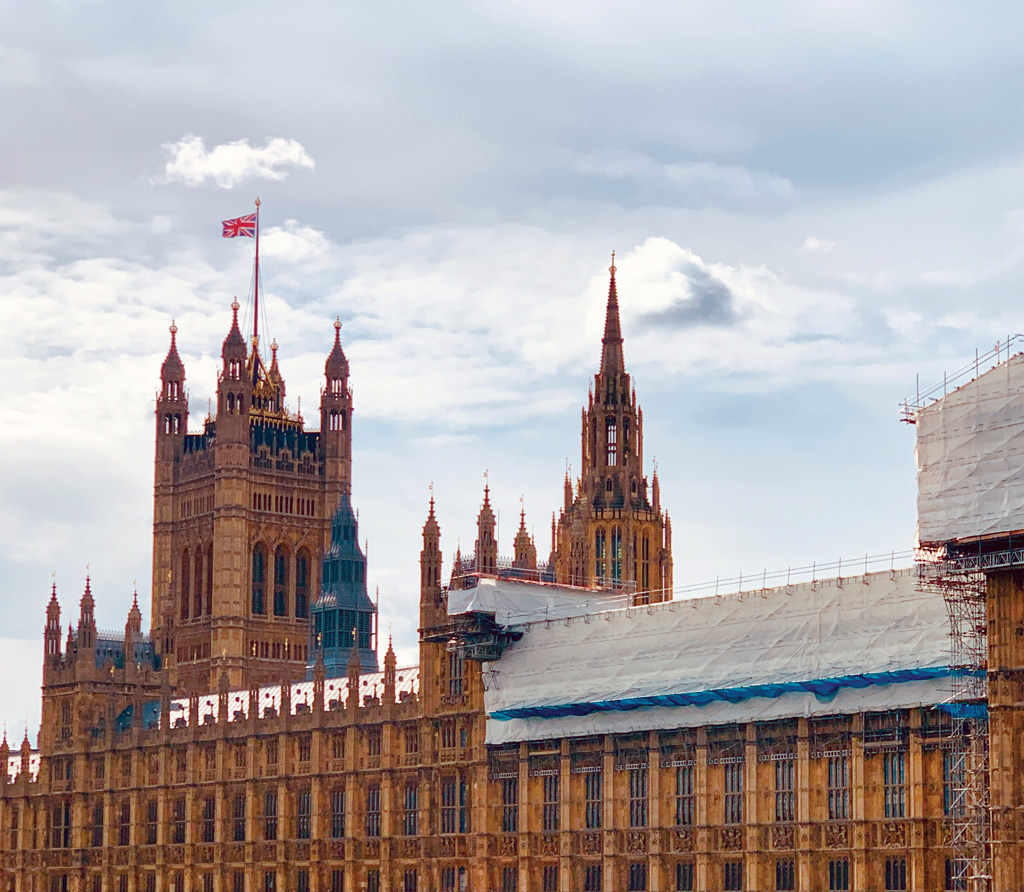Europe. On the 29th of March 2019 the UK was supposed to leave the EU, but the deadline has been postponed – leaving the situation uncertain. We have collected the major possible changes for international students and talked to Benjamin Sluckin about Brexit.
 International Students
International Students
Studying. When – or if? – the UK leaves the EU, there will be a lot of changes for international students. How will Brexit affect EU students in the UK – especially regarding their tuition fees? At the moment, most universities in the UK charge EU students the same as home students. However, the tuition fees for international non-EU students are usually much higher: For example, the University of Oxford charges Home and EU students 9,250 Pound per year, but overseas students between 24,750 Pound and 34,678 Pound. With the possibility of Brexit just around the corner, many EU students fear that they cannot afford to study in the UK any longer.
According to several news agencies, the British education secretary Damian Hinds plans to raise the tuition fees for EU students. Under his proposal, starting in the academic year 2021/22, EU students would pay as much as overseas students – regardless whether there will be a Brexit deal or not. However, Hinds’ proposal might not apply to all universities in the UK. Right now EU students in Scotland do not have to pay more than Scottish students. For example, the University of St. Andrew’s charges EU students and Scottish students 1,820 Pound, while they charge English students 9,250 Pound. Several universities in the UK have released statements about Brexit, with some offering a bit of certainty for EU students who are starting their studies in 2019. The website of the University of Westminster states: ‘‘If you’re an EU student applying for 2019/20 entry, you will pay the same tuition fees as UK students for the duration of your studies.’’ The situation is similar for the Erasmus exchange programme. So far, the Deutscher Akademischer Austauschdienst (DAAD) has released a statement saying all Erasmus exchanges which start before the end of October 2019 will be funded as usual. However, most EU students who plan to study in the UK will have to wait for official statements from the
government.
:Charleena Schweda
 Interview
Interview
:bsz: Hello Mr. Sluckin, Brexit is just around the corner. How do you rate the situation for British students who want to study abroad?
Benjamin Sluckin: It doesn’t look good and it depends on how students want to study abroad. The UK government has promised to match Erasmus funding for a short while, but not for long. So exchange years have some limited protection for now. Things could be more difficult for UK students who decide to study abroad, enrolled in an university degree. They will need to fulfil certain requirements for student visas, and more pressingly, they will potentially have to pay international fees at universities in certain states of Germany or European countries. Overall, it isn’t looking great, but it won’t become totally impossible, just much harder for students without wealthy parents.
And how would you assess the situation for foreign students in the UK?
It’s really not looking good for EU students in the UK after the proposed transition period. While things are still fluid, EU students could be subject to international fees from 2021, which can be £20,000+. Moreover, with the loss of Erasmus, it isn’t clear what kind of funding will be available for exchange students. I don’t see the government actively stoping EU students from Germany undertaking courses, but cost will become the primary issue.
You are a British citizen and a university lecturer. Do you expect difficulties with your university career?
It is very possible that Brexit will make my professional progression more difficult. Firstly, it affects my ability to accept positions in other countries without losing the right to residence in Germany, which is a big problem. Secondly, nearly all senior positions in the German universities are civil servant positions (Verbeamtete Berufe), which are only available to Germans and EU citizens. With Brexit, British citizens can no longer become civil servants in Germany. There are ways around this, but those senior academics who are not civil servants, i.e. ‘akademische Räte’ and Professors, receive lower salaries and lower pensions. We really are not sure yet how it will play out exactly, though.
Do you think that the situation in Northern Ireland and Ireland will worsen?
Yes, yes, and yes. I don’t know why the Brexiteers did not see this coming, because for anyone with a grasp of the history and politics of Northern Ireland it was so simple. The problem for people like me is that I have grown up in an open Europe and identify as European and British. The problem for the Irish catholics in NI is that they actively identify as Irish and not British. If you take Britain out of the EU, you are in effect taking away part of their right to live their lives as Irish Europeans in their homes, and thereby seriously threatening the Good Friday agreement.
Do you believe there will be a new referendum in the UK?
I want to believe it. It might be the only way out of this mess but the politics of it are not easy. A hard Brexit would destroy the economy and doom the electability of the Tory party. A deal with Labour’s support would doom the Labour Party for the forseeable future and just damage the economy. Cancelling Brexit altogether would threaten trust in our democratic institutions more than it has already been done so. A referendum threatens the internal fabric of the Tory party without destroying or severely damaging the economy, and might just about keep wider faith in democratic institutions. So who knows, but I have never experienced Britain as split as it is today.
A final word on British exceptionalism?
Growing up in Britain, we were raised on a diet of post WWII triumphalism and British (or rather English) exceptionalism; that is, we had an empire (the morality of which was rarely questioned), we repelled the Nazis, made it through against all odds, and came out victorious. It is ironic that this spirit, which is very much the fruits of our (great)grandparents’ sacrifices, has led to the British exceptionalism we see today. The Brexit mentality came from so many British people wrongly believing in a pyrrhic creation myth that Britain has always and should always stand alone because no challenge is too great for Great Britain; Britain is special, and the British have a resolve far greater than that of any person on the continent, i.e. Facists and the capitulators we liberated from them – otherwise known as the French (who were the villains before the Germans, the Russians, and now those dastardly EU do-gooders). The only positive outcome of Brexit is that the British may be forced to reevaluate their sense of self, when it all goes horribly wrong, as Germans did so successfully in the post war period.
Interview by :Abena Appiah
Portrait: Benjamin Sluckin
Oxford: leda


0 comments